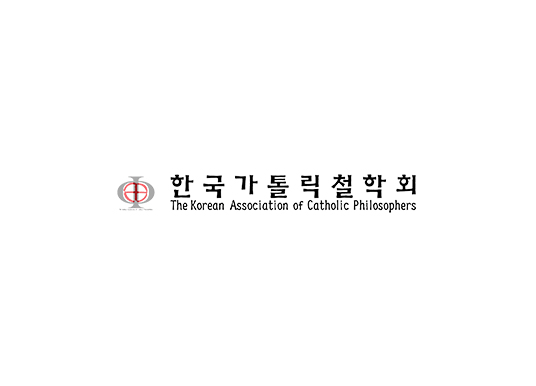아리스토텔레스 영혼론의 신플라톤적인 해석의 분열과 종말
The Split or the End of the Neoplatonic Interpretation of Aristotle’s On the Soul
박규희
가톨릭대학교(성의교정) 인문사회의학연구소
가톨릭철학
2024, vol., no.43, pp. 5-37 (33 pages)
한국가톨릭철학회
1. 들어가는 말
__1.1 인물과 작품의 개괄
__1.2 주해의 특징
__1.3 연구목적
2. 본문: 스테파노스의 지성 이론
__2.1 영혼의 통일성
__2.2 지성의 사유 구조
__2.3 현시태의 지성과 능동지성
3. 나가는 말
초록
본 글은 필로포노스의 이름으로 전해진 아리스토텔레스의 영혼론 3권에 관한 주석서에 담긴 스테파노스의 영혼론 사상의 특징을 조명한다. 스테파노스는 올림피오도로스가 확립한 주석전통을 따르는 알렉산드리아 신플라톤주의 학파에 속하는 사상가로서6-7세기경 알렉산드리아와 콘스탄티노폴리스에서 활동한 것으로추정된다. 그런데 스테파노스는 기존의 주석들을 종합적으로 정리하고 평가하면서 신플라톤주의 형이상학에 거의 의존하지 않는영혼론 해석을 내놓는다. 이러한 특징은 세 가지 측면에서 확인할 수 있다. 첫째, 스테파노스는 영혼의 능력들을 부분으로 파악하는 플루타르코스의 이론을 비판한다. 둘째, 스테파노스는 플라톤의 상기 이론이 아리스토텔레스의 가능지성의 상태에 호환될수 없다고 주장한다. 셋째, 스테파노스는 능동지성은 알렉산드로스 아프로디시아스와 플루타르코스가 말한 것처럼 인간 외부에있는 보편적인 작용자도 아니고 인간 안에서 항상 현실태로 사유하는 지성을 뜻하지도 않는다고 말한다. 스테파노스는 이성혼의히포스타시스적인 근거나 신과의 관계, 신과의 합일에 대해서는아무런 말도 하지 않는다. 기존의 주석 전통에서 인간의 이성혼과 사유 구조의 형이상학적 함축을 모조리 떼어내고 경험세계에서 관찰 가능한 사태만으로 지성을 해명한 결과, 신플라톤적인영혼론 주석의 역사에서 보기 드문 자연내재적인 영혼론 해석이등장하게 된다. 스테파노스의 영혼론 사상의 독특함은 그가 속한비잔틴 제국 그리스도교의 문화적 특성으로부터 어느 정도 설명될 수 있으나 그렇다고 그의 주해가 신학적 주석인 것은 아니다.
This article sheds light on the characteristics of Stephanus’ theory of the soul as presented in the commentary on Aristotle’s De Anima, Book III, attributed to Philoponus. Stephanus, a thinker belonging to the Alexandrian Neoplatonic school, which followed the exegetical tradition established by Olympiodorus, is believed to have been active in Alexandria and Constantinople during the 6th to 7th centuries. However, while synthesizing and evaluating previous commentaries, Stephanus presents an interpretation of the theory of the soul that is largely independent of Neoplatonic metaphysics. This distinctive feature can be identified in three aspects. First, Stephanus criticizes Plutarch’s theory, which views the powers of the soul as parts of it. Second, he argues that Plato’s anamnesis-theory cannot be reconciled with Aristotle’s concept of potential intellect. Third, Stephanus asserts that the active intellect is neither a universal agent external to humans, as described by Alexander of Aphrodisias and Plutarch of Athen, nor an intellect of any individual man that always thinks in actuality. Stephanus remains silent on the hypostatic foundation of the rational soul, its relationship to God, and the purifying process to be unified with the divine One. By removing allmetaphysical implications of the human rational soul and structure of intellect from the traditional commentaries and explaining intellect solely based on observable phenomena in the empirical world, Stephanus offers a rare, naturalistic interpretation of the theory of the soul within the history of Neoplatonic commentary.
While the uniqueness of Stephanus’ theory of the soul can be partly explained by the cultural characteristics of the Christian milieu to which he belonged, his commentary cannot be considered a theological exegesis.

